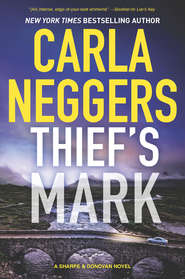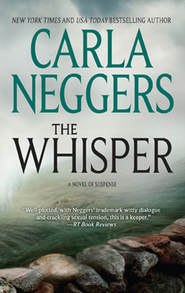По всем вопросам обращайтесь на: info@litportal.ru
(©) 2003-2024.
✖
Betrayals
Автор
Год написания книги
2018
Настройки чтения
Размер шрифта
Высота строк
Поля
Tam was certain her new friend had seen her and she’d have to give the stones back, but Rebecca ran into the caretaker’s house with the longest, fattest worm Tam had ever seen.
“Isn’t it cute?” Rebecca asked.
“Yes, it is,” Tam said, feeling much better.
Two
Boston, Massachusetts
Thirty years later
The waiter for the unhappy vice president of Winston & Reed brought him a second perfectly mixed martini and silently whisked away the empty glass of his first. A thin, gray-haired, punctilious man, Lee Donigan had a low threshold of tolerance for two things: doing someone else’s dirty work and being kept waiting. Rebecca Blackburn had managed to trigger both sources of irritation in one day.
He tried the martini. Excellent. He welcomed its soothing burn. It was his own fault he was stuck with this unpleasant task. He should have investigated the possibility that the award-winning graphic designer his public relations director had hired to revamp Winston & Reed’s corporate look was one of the Blackburns. He had assumed a Boston Blackburn wouldn’t have the gall to take on an assignment with his company. One should never assume.
Particularly, he’d learned the hard way, with a Blackburn.
And especially this one.
A flash of color, a burst of energy—both compelled Lee to look up. Rebecca Blackburn caught his eye from across the busy restaurant and waved, ignoring the maître d’as she made her way to his table. Her electric personality seemed to light up the lunchtime crowd atop the forty-story Winston & Reed Building. In the few times he’d met her, Lee had observed that Rebecca was the kind of woman who never cooled off. She was always on, always moving. When her subtle, grab-from-behind beauty was added to that compulsive energy, the result was one unforgettable woman. Her high cheekbones, strong eyebrows and chin and straight nose provided the drama in her keenly attractive face, the rich, unusual chestnut color of her chin-length hair complementing the pure creaminess of her skin. Lee found himself hoping she was too professional to unleash her temper on him. That she had one he didn’t doubt for a second.
She swept into the chair opposite him, a panoramic view of Boston Harbor under a clear May sky at her back. Lee’s table was the best in the house. His office was just two floors down. He enjoyed working in what was commonly referred to as Boston’s boldest and most luxurious building. He intended to keep his job, even if it meant doing for Quentin Reed what the president of Winston & Reed wouldn’t do for himself.
“Sorry I’m late,” Rebecca said.
There was nothing apologetic in her tone or her expression, and Lee’s moment of guilt drowned under a fresh wave of irritation. The woman had to have known she was provoking just such a lunch as today’s when she bid for the coveted design job with Winston & Reed. She should have restrained herself.
“But,” she went on, “I’ve never been asked to lunch with a vice president who didn’t mean to fire me.”
Fresh words from a damn artist, Lee thought. Her eyes—a vivid, clear blue—met his just for an instant before she smiled and put her water glass to her coral-dusted lips. She looked every inch the stylish professional in a pumpkin-colored jacket over a black skirt—probably, if Lee could believe hall gossip, something she’d picked up for a song at Filene’s Basement. She could afford to shop wherever she liked. Lee had to remind himself that Rebecca Blackburn was a very wealthy woman. She wasn’t going to starve.
He noticed the gold dragons hanging from her ears. They demonstrated her renowned irreverence, her Blackburn independence. Even if they’d been three-dollar costume pieces—and they weren’t—they would have told Lee Donigan that she wasn’t one of them. She stood apart from everyone else at Winston & Reed. She didn’t belong. And she knew it.
He decided not to bother mincing words with her. “You’re right,” he said. “We have to cancel our contract with you, Rebecca.”
“Whose idea?”
“That’s irrelevant.”
He motioned for the waiter and nodded to Rebecca to order, not caring that he was rushing her. She was the one who’d shown up late. She ordered the broiled scrod and a salad, and he made it two. The two martinis had curbed his appetite.
“I’ll have mine to go,” Rebecca said as the waiter started to leave.
The poor fellow looked dumbfounded. “To go?”
She graced him with one of her most dazzling smiles. “Please.”
Lee silently cursed Quentin Reed for being such a pusillanimous jerk he couldn’t tell a woman he’d known since childhood to quit playing games with him and get the hell out of his company.
“I gather you don’t even want to see the proofs,” Rebecca said.
“I don’t see what purpose that would serve.”
But Lee would have loved Rebecca Blackburn to spread her portfolio on the linen-covered table and to give him a good, long look at the work she’d done for his company. As a designer, Rebecca was top-notch. Her preliminary sketches for Winston & Reed had blended the company’s disparate elements, its old Boston traditionalism with its modern boldness and direction. Lee knew she wouldn’t be easily replaced, if at all.
“Are you going to give me any advice?” she asked suddenly.
Her question caught Lee off guard. “I beg your pardon?”
“I’ve never been fired without getting unsolicited advice on how to conduct myself in the future. My favorite was from the president of the Dallas-based oil company where I worked a couple of months about two years ago. He told me I ought to get my pretty little self married and start having babies, but then he changed his mind and said he wouldn’t wish a smart-mouthed nutcase like me on any red-blooded male.”
Lee fervently wished for another martini. His public relations director had alerted him to Rebecca’s résumé and its dizzying list of firms and cities where she’d worked since becoming one of the rags-to-riches business successes of the decade at twenty-five. She and her former roommate at Boston University had created the fun, fast-paced, irreverent trivia game Junk Mind that had become an instant and explosive bestseller. When they’d sold the rights to a Boston-based toy-and-game conglomerate, the roommate had taken a vice presidency with the company and they’d made a fortune. Rebecca, who’d designed the game board now in millions of households across the globe, had continued her drifting. New York, London, Paris, Dallas, Seattle, Honolulu, San Diego, Atlanta—she’d had jobs in them all. Not that she needed to work, but in the short time he’d known her, Lee had gained the distinct impression she didn’t hold a high opinion of the idle rich—or anyone who didn’t work. She’d only been back in Boston five months, making another of her periodic runs at operating her own design studio. But to make a lasting success of a studio, she would finally have to make the commitment not just to her latest project but to a place. Lee didn’t know if she was running from herself, from the tragedies in her past, from her own startling success, or if she was running at all. He wondered if she was just not ready to stay put. With Rebecca, it could be just that simple.
“I’m not going to give you any advice,” he said, smiling in spite of himself. “I only hope you find whatever you’re looking for here in Boston. And I wish you luck, Rebecca.” He extended his hand across the table. “Truly, I do.”
“Would it have made a difference if I weren’t a Blackburn?”
“It would have made a difference,” he said, knowing he shouldn’t, “if you were anyone but who you are.”
Rebecca wasn’t one to turn down a meal Quentin Reed was stuck paying for, but the smell of the fish turned her stomach as the elevator plunged forty stories, its doors sliding smoothly open at the cherry, marble and brass lobby. She started out.
And stopped. No. She wasn’t going to let Quentin off that easily.
She marched back into the elevator, tapped thirty-nine, and nibbled on a sprig of crisp spinach on the way up. She wasn’t afraid of Quentin Reed. She’d run and fetched him baking soda and water the time he and Jared Sloan had peed in the yellow jackets’ nest, and she hadn’t told his mother of their idiocy when she’d demanded to know why the two boys were walking so funny.
The thirty-ninth-floor reception area was, if anything, more opulent than the lobby, but Rebecca had no trouble lying her way past the receptionist into the inner sanctum of the president and chief executive officer of Winston & Reed, Boston’s most prestigious real estate and construction firm. Annette Winston Reed still retained the title of chairman of the board, but the real power of the company now resided with her thirty-seven-year-old son, a circumstance that surprised Rebecca. Annette had never thought Quentin was worth a damn.
His secretary was a well-dressed, highly efficient woman who informed Rebecca she would require an appointment to see Mr. Reed.
“I’m a family friend,” Rebecca said, breezing past her.
On her feet at once, Willa Johnson, willowy and fast, protested, firmly suggesting Rebecca wait while she checked with Mr. Reed—or suffer the consequences of her whisking in security.
“Mr. Reed and I,” Rebecca said, “were kicked out of the wading pool on Boston Common for taking our clothes off. He was five and I was two.” Supposedly, too, Jared had been the one who’d gotten them dressed and hauled them back to Beacon Hill. Mercifully, Rebecca didn’t remember.
With Willa momentarily taken aback at the image of her well-bred boss skinny-dipping on Boston Common, Rebecca slipped into his spectacular office.
Across the room, Quentin Reed slowly hung up his telephone, his pale blue eyes riveted on her. “Rebecca,” he said in little more than a whisper.
It had been fourteen years.
A recovered Willa, about to strong-arm Rebecca out herself, heard the emotion in her boss’s raw voice and retreated, quietly shutting the door behind her.
“Hello, Quentin.”
He was as handsome as ever. Ash-haired, square-jawed, trim, even confident, although Rebecca suspected that was more in appearance than in fact. Quentin had forever been at war with his sensitive nature. He wore a conservative pinstriped suit of exquisite cut.
He cleared his throat. “What can I do for you?”











